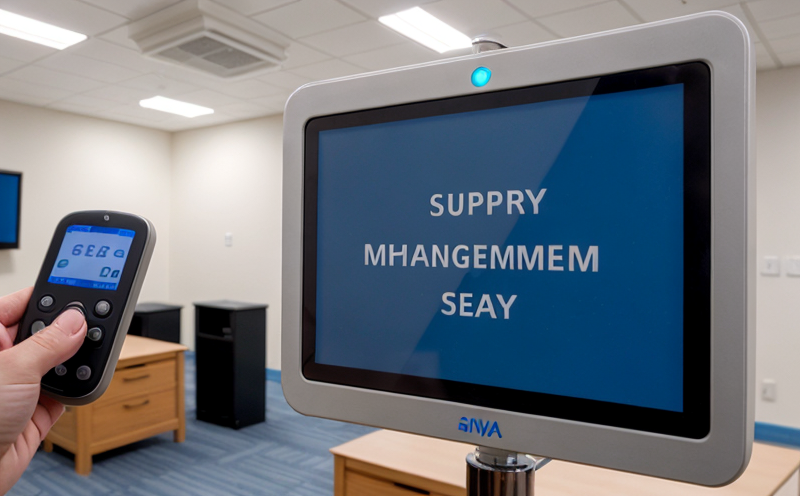The Critical Role of Supply Chain Management in Healthcare Devices
In todays complex healthcare landscape, medical devices play a vital role in diagnosing, treating, and managing various diseases and conditions. The supply chain management (SCM) of these devices is crucial to ensure that patients receive the necessary medical equipment and supplies on time, in good condition, and at an affordable price. In this article, we will delve into the intricacies of SCM in healthcare devices, highlighting its significance, challenges, and best practices.
The Significance of Supply Chain Management in Healthcare Devices
SCM in healthcare devices involves managing the flow of medical equipment, supplies, and services from manufacturers to end-users, including hospitals, clinics, and patients. A well-designed SCM system can have a significant impact on patient care, hospital operations, and ultimately, public health. Here are some key reasons why SCM is critical in healthcare devices:
Patient Safety: Medical devices must be available when needed, with minimal delays or stockouts. SCM ensures that medical devices are delivered to the right place at the right time, reducing the risk of patient harm due to device unavailability.
Cost Savings: SCM can help reduce costs associated with inventory management, transportation, storage, and waste disposal. By optimizing inventory levels and streamlining logistics, healthcare organizations can save millions of dollars annually.
Quality Control: SCM ensures that medical devices are stored, transported, and handled properly to prevent damage or degradation. This reduces the risk of device failure, which can lead to patient harm or even death.
Regulatory Compliance: SCM helps healthcare organizations meet regulatory requirements, such as those related to medical device sterilization, labeling, and packaging.
Challenges in Supply Chain Management for Healthcare Devices
While SCM is critical in healthcare devices, it also poses several challenges, including:
Complexity: Medical devices have unique characteristics that require specialized handling, storage, and transportation. SCM must account for these complexities to ensure device integrity.
Regulatory Compliance: Healthcare organizations must adhere to numerous regulations, such as those related to medical device safety, labeling, and packaging. SCM must be designed to meet these regulatory requirements.
Supply Chain Disruptions: Natural disasters, supplier insolvency, or transportation disruptions can cause supply chain failures, leading to device unavailability or shortages.
Inventory Management: Managing medical device inventory is complex due to varying product lifecycles, storage requirements, and usage patterns.
Best Practices in Supply Chain Management for Healthcare Devices
To overcome the challenges mentioned above, healthcare organizations can implement the following best practices:
Collaboration with Suppliers: Develop strong relationships with suppliers to ensure timely delivery of medical devices. This includes regular communication, transparent pricing, and collaborative problem-solving.
Inventory Optimization: Implement data-driven inventory management techniques, such as just-in-time (JIT) or vendor-managed inventory (VMI), to minimize stockouts and overstocking.
Supply Chain Visibility: Use technology, such as track-and-trace systems, to monitor medical device movement in real-time. This enables proactive issue resolution and improves supply chain resilience.
Continuous Improvement: Regularly review and refine SCM processes to address emerging challenges and opportunities.
QA Section
Here are some frequently asked questions related to SCM in healthcare devices:
Q: What is the most critical aspect of SCM in healthcare devices?
A: The most critical aspect of SCM in healthcare devices is ensuring patient safety by delivering medical equipment and supplies on time, in good condition, and at an affordable price.
Q: How can SCM help reduce costs in healthcare organizations?
A: SCM can help reduce costs associated with inventory management, transportation, storage, and waste disposal. By optimizing inventory levels and streamlining logistics, healthcare organizations can save millions of dollars annually.
Q: What are the key regulatory requirements for SCM in healthcare devices?
A: Key regulatory requirements include those related to medical device sterilization, labeling, and packaging. Healthcare organizations must adhere to these regulations to ensure patient safety and compliance.
Q: How can healthcare organizations mitigate supply chain disruptions?
A: Healthcare organizations can mitigate supply chain disruptions by developing contingency plans, diversifying suppliers, and investing in technology to enhance supply chain visibility and resilience.
Q: What are some best practices for inventory management in healthcare devices?
A: Best practices include implementing data-driven inventory management techniques, such as JIT or VMI, and using technology, such as track-and-trace systems, to monitor medical device movement in real-time.
Q: How can SCM be integrated with other hospital operations, such as patient care and quality improvement initiatives?
A: SCM can be integrated with other hospital operations by leveraging data analytics and performance metrics to inform supply chain decisions. This enables healthcare organizations to make data-driven decisions that improve patient care, reduce costs, and enhance operational efficiency.
Q: What are some emerging trends in SCM for healthcare devices?
A: Emerging trends include the use of artificial intelligence (AI) and machine learning (ML) to optimize supply chain operations, the adoption of blockchain technology to enhance supply chain transparency and security, and the integration of 3D printing and additive manufacturing to reduce inventory levels and improve device availability.
By understanding the significance, challenges, and best practices in SCM for healthcare devices, healthcare organizations can ensure that patients receive the necessary medical equipment and supplies on time, in good condition, and at an affordable price. This ultimately contributes to improved patient outcomes, reduced costs, and enhanced public health.

































